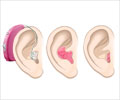Discover how hearing aids may reduce mortality risk by 24% among adults with hearing loss, according to a comprehensive study by Keck Medicine of USC.
- Regular use of hearing aids is associated with a remarkable 24% lower risk of mortality among adults with hearing loss
- The analysis of 10,000 adults, unveils the potential health benefits of hearing aids beyond addressing auditory impairment
- This research emphasizes the urgent need to overcome barriers, such as cost and stigma, encouraging wider adoption of hearing aids
Regular Hearing Aid Use Linked to Longer Lifespan: Study Finds 24% Decreased Risk of Early Death
Go to source).
Underutilization of Hearing Aids
Research indicates that only one in 10 people with hearing loss who need hearing aids actually use them. This under-utilization is a critical issue that the study aims to address. The mortality risk reduction associated with regular hearing aid use remained consistent across different factors. This suggests that the protective role of hearing aids in overall health is not influenced by the severity of hearing loss, age, or other demographic variables.Study Details
The study, led by Dr. Janet Choi, an otolaryngologist with Keck Medicine, utilized data compiled from the National Health and Nutrition Examination Survey between 1999-2012. Nearly 10,000 adults aged 20 and older, who had completed audiometry evaluations and provided information about their hearing aid use, were included in the analysis. The participants were followed for an average period of 10 years to assess their mortality status.Among the 1,863 adults identified with hearing loss, 237 were regular hearing aid users, and 1,483 were classified as never-users. The study revealed a substantial 24% lower risk of mortality in regular hearing aid users compared to those who never used them.
The study demonstrated that the mortality risk difference between regular hearing aid users and never-users remained constant across various variables, including the degree of hearing loss, age, ethnicity, income, education, and medical history.
Implications and Future Research
The findings of this research have significant implications for public health, emphasizing the potential lifesaving benefits of incorporating hearing aids into the lives of individuals with hearing loss. Dr. Choi hopes that this study will encourage more people to consider wearing hearing aids, despite existing barriers such as cost, stigma, and challenges in finding suitable devices.The study did not delve into the specific mechanisms explaining why hearing aids may contribute to a lower mortality risk. However, Dr. Choi points to recent research linking hearing aid use with reduced levels of depression and dementia. She speculates that the improvement in mental health and cognition resulting from enhanced hearing may contribute to better overall health and increased life expectancy.
Dr. Choi, who personally understands the challenges associated with hearing loss, is actively working on an AI-driven database to categorize hearing aid choices and tailor them to individual patient needs. Additionally, she advocates for larger studies to further explore the connection between regular hearing aid use and lower mortality risk, ultimately promoting better hearing care and overall well-being.
Reference:
- Regular Hearing Aid Use Linked to Longer Lifespan: Study Finds 24% Decreased Risk of Early Death - (https://hearinghealthmatters.org/hearing-news-watch/2024/hearing-aids-reduce-early-death-risk/)
Source-Medindia
















